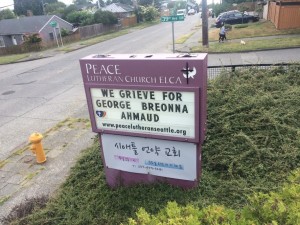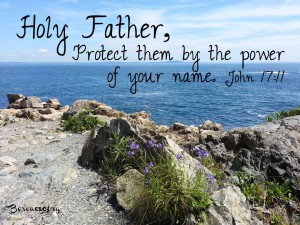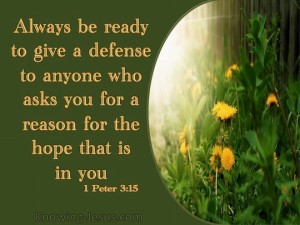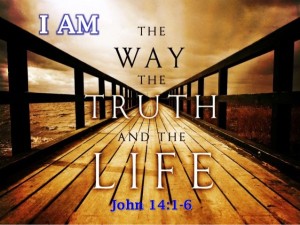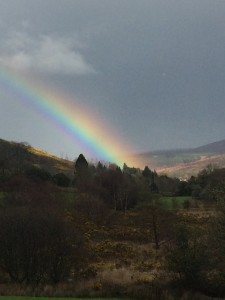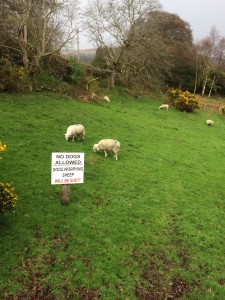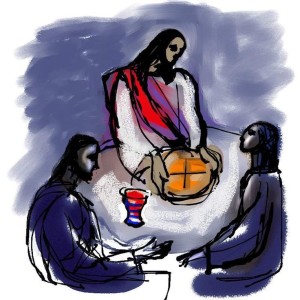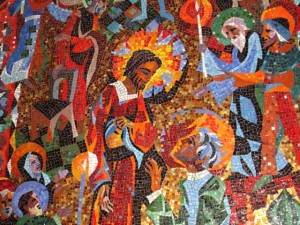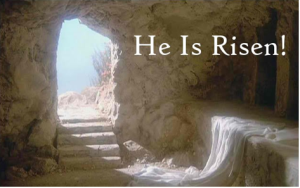When Jesus saw the crowds, he had compassion for them, for they were harassed and helpless, like sheep without a shepherd. – Matthew 9:36
People of God,
Stories of being followed, stopped, harassed, threatened, intimidated, tased, arrested, falsely accused and otherwise abused by police officers sworn “to protect and serve” the public good are so legion and so deeply rooted in the experience of people of color that it is has long since come to be treated as a fact of life. Because of this, parents, when their children reach a certain age, sit them down for “The Talk,” laying out rules for engagement that must be followed if their children are to survive in a dominant culture that—regardless of facts or intent—perceives them as threat, as hostile, as guilty because of the color of their skin. For generations, parents have given the same lecture to their children: Don’t act out. Stay away from bad places. Avoid confrontations. A list of do’s and don’ts every black person should follow if they want to avoid being brutalized or killed by police officers or other white people.[1] But after high profile and deadly confrontations in Minneapolis (George Floyd), Louisville, (Breonna Taylor), and Brunswick, Georgia, (Ahmaud Arbery) in recent months, what exactly should black parents be telling their kids now? And what should white parents be telling their kids?
As a white parent, I didn’t give my children “The Talk”; it never entered my consciousness as something I would ever need to do. This is the definition of white privilege—the working assumption that systems of justice, government structures, and public institutions that hold power in our society will, by and large, work well for me and mine and serve our interests. Thanks to my younger kids’ multicultural peer groups and friendships, the teachers in their K-8 school and high school, and conversations that come up around our dinner table, Kai and Naomi are much more aware and conversant with issues of race than I was as a kid growing up in Montana and Minnesota. The years of childhood I spent in Minnesota—grades 4-10—left me with overwhelmingly positive memories. Now, the Minnesota I see portrayed on the television and the evidence of injustice from police forces that I’ve always taken for granted were “on my side” have me questioning what underbelly of the Midwest culture I’ve been missing. This questioning moved deeper last week after conversations I had with my older son Nathan and his wife Dehydra, who live in the same Longfellow neighborhood where George Floyd was murdered; and deeper still when I read a post from a young black woman in Minneapolis, a hospital worker, named Emily Otiso, which my son had shared with me. Here’s an excerpt:
“As a black woman I *know* that my brother’s life, that my life, is worthless in the eyes of the criminal ‘justice’ system. As someone who has lived in 5 states and traveled to 30 others, I have said, and will continue to say, that Minnesota is the most racist state I have ever lived in. I am constantly treated like a criminal in my own community.
I am constantly living in fear because of my race. I have lived with these feelings for as long as I can remember, long before Black Lives Matter started trending. There are no words to describe the weight of the burden you bear when your skin is ‘the wrong color.’
“What is happening is not just about George Floyd. His murder and the protection given to his murderers set off the racial powder keg here, in the most racist city in which I have lived, in America, a country composed of 400 years institutionalized racism, systemic oppression, police brutality, implicit bias, micro aggressions, and countless other legalized and socially acceptable ways in which our country keeps its knee on the neck of black communities.
“This pandemic has affected all of us and has, without a doubt, contributed to the violence that has erupted in our city. Covid-19 has led to people losing their jobs and filing for unemployment, it has led to frontline workers begging for proper protection because their lives depend on it, and it has taken a massive toll on our country’s mental health. I implore you to take a moment to consider the parallels between this crisis and the crisis black communities face on a daily basis.”
For decades, incidents of police brutality were largely hidden from public view. But ever since the 1991 video showing Rodney King, an unarmed black man, being brutally assaulted by four white Los Angeles police officers, the reality and frequency of abuse has been increasingly laid bare. Over 1,000 people have been fatally shot by the police in the past year, according to The Washington Post. And on May 25th, in broad daylight, in the presence of eyewitnesses and with camera phones rolling, we watched four Minneapolis police officers ignore the pleas both of victim and bystanders alike, and engage in the slow, tortuous asphyxiation of Mr. Floyd. The resulting protests and riots in cities throughout the country, including Seattle, have set loose a cauldron of raw emotions, peaceful and determined protests, acts of looting and arson, confrontations, property destruction, newly alleged incidents of police brutality, and National Guard deployments.
As some of you know, one of my public roles is serving as a Volunteer Chaplain with the Seattle Police Department. This role has given me the opportunity to see police officers and their work up close on a number of occasions. I’ve sat through regular roll calls and through debriefings after major shooter incidents; I’ve met officers at the homes of persons who have just committed suicide; I’ve listened to young officers who were experiencing circumstances for the first time and wanted to “get it right”; I’ve watched officers who’ve worked double shifts stand for hours in the heat, speaking compassionately to folks who’ve suddenly lost their loved ones; I’ve participated at the memorials of officers killed in the line of duty. My take? Just like pastors, not all police officers are the same. Like pastors, officers are drawn to their vocation for a number of different reasons. Like pastors, some have more gifts and aptitudes for the work than others. Like pastors, some perform well and others poorly; some are successful and others less so. We cannot place every officer into a single bucket of attributes and tendencies or make assumptions about what motivates them. Perhaps most importantly, the overall culture of the police department where officers serve out their careers plays an outsized role in shaping the kind of public servants they become. In Minneapolis, that culture has, by many accounts, been toxic to black citizens. And police departments across the country, since 9/11, have become more militarized in their weapons and tactics in the face of perceived and real terrorist threats.
Where are the signs of hope? How about Flint, Michigan, (yes, that Flint) where Genesee County Sheriff Christopher Swanson, standing before a crowd of outraged protestors, told them “we want to be with you all for real,” and proceeded to take off his helmet and have his officers put down their batons. When the protestors applauded, he asked them what he and the other officers needed to do, to which the crowd chanted their reply: WALK WITH US…WALK WITH US…WALK WITH US! And so he did. “We are walking with you,” he told the crowd, “because all you’re asking for is a voice and dignity for all, no matter who you are.”[2] Resolutions are possible when, looking across the barricade, we see other human beings, not enemies.
When Jesus, as he moved through the cities and towns of Galilee, saw crowds of desperate, needy people, his response was one of deep compassion. The Hebrew word for compassion shares the same root as the word for womb.[3] To have compassion is to have a womb for someone—that is, to treat that person just like the one who once carried her inside her own body; to remember how loved that person was even before eyes were ever laid upon her. You can’t practice that kind of love without becoming vulnerable yourself. That’s what Sheriff Swanson did in Flint; that’s what Jesus did again and again.
Let me be clear: People of color in this country have lived with vulnerability and trauma ever since the first slave ships docked on these shores 400 years ago. Jesus is not asking people of African descent to maintain their position of vulnerability while they await some form of redemption. Instead, he’s asking—commanding—those of us who, by virtue of race, gender, economic power, or social status live privileged lives, to come clean about that privilege, to learn to recognize the continuing vulnerability of neighbors like George Floyd and Emily Otiso, to refuse to accept the status quo any longer, and to become part of the movement for sustainable, systemic change. For some of us that may well mean a non-violent presence on the street—marching or cleaning up the examples of defacement left by others. For others of us it may mean working within our families, work contexts, among peers, and in our neighborhoods to make our solidarity and commitments visible. For all of us it means giving new expression to God’s dream to “love our neighbors as ourselves.”
This is a moment in our culture to be seized upon for good. Let none of us be bystanders.
Pádraig Ó Tuama, former leader of the Corrymeela Community in Northern Ireland writes:
In these moments the past and the future pivot.
In these moments the inner life of reflection
can help us reach out for the outer life of reconciliation.
We turn to each other.
We ask the difficult question.
We hear the difficult answer.
It changes us. We turn to each other.
We have the possibility of making something new together.
Our prayer deepens our action.
May we all be reconciled
living in the unity for which all were created.
Despite all the death that surrounds us, the injustices, the pains, the losses, the laments, God’s compassionate womb holds every one of us—on whichever side of death we find ourselves. But God does more than hold us. In Jesus, God summons us to a compassionate Way of living in community, of exorcizing the demons of racism and white privilege, and of journeying with him on the path of solidarity and reconciliation.
Yours in Christ, Pastor Erik
_______________________________________________
[1] Does “the talk” work anymore: https://www.msn.com/en-us/news/us/black-parents-wonder-if-the-talk-is-still-effective-in-keeping-their-children-safe/ar-BB14LFV2
[2] See New York Times article documenting the event: https://www.nytimes.com/2020/05/31/us/flint-sheriff-protestors-camden-police-ferguson.html
[3] Frederick Niedner.


